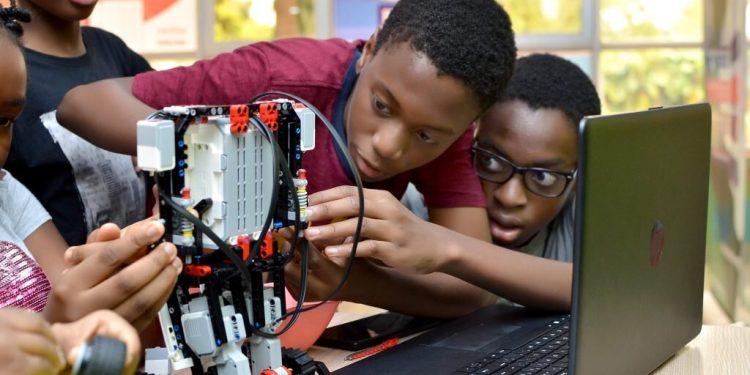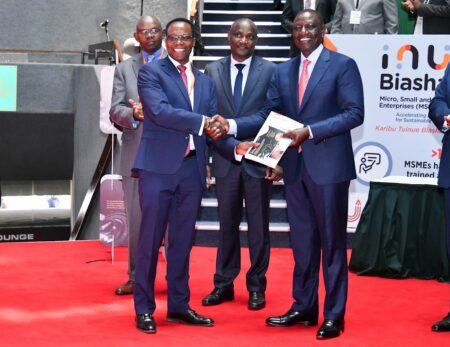The World Bank Board of Directors has approved a US$750 million (Ksh75.9 billion) International Development Association (IDA) credit for Kenya, in the latest move by the global lender to channel funds to the East Africa State.
A member of the World Bank Group headquartered in Washington D.C, IDA is an international financial institution which offers concessional loans and grants to the world’s poorest developing countries
The loan comes amid concerns over the country’s ballooning public debt which crossed the Ksh5.1 trillion (US$50.4 billion) mark in September 2018, with possibilities of going Ksh5.6 trillion (US$55.4 billion by close of the year.
READ:Tough times: Kenya piles Kshs 2.5 billion debt in a day
On Tuesday, Central Bank of Kenya (CBK) governor Patrick Njoroge said the country’s headroom for new borrowing has shrunk since it tapped the US$2.1 billion Eurobond earlier this month, which part of it has gone towards debt refinancing. (Xanax)
IDA credit
Despite the existing concerns on the growing debt, including from the International Monetary Fund (IMF), the World Bank has allowed Kenya to access the credit facility.
It is meant to support the government’s reforms to enhance inclusive growth, accelerate poverty reduction and achieve its Vision 2030 objective of becoming a middle-income industrialized country, according to World Bank.
The operation lends support to the government’s “Big Four” agenda which prioritizes agriculture, affordable housing, universal health coverage, and manufacturing.
READ:How Kenya plans to accelerate Big 4 Agenda
In agriculture, the Kenya Inclusive Growth and Fiscal Management Development Policy Financing facility will support critical reforms that will enhance competition and market transparency, reduce corruption opportunities, and help Kenyan farmers to achieve higher productivity and to increase their incomes, the lender notes.
Reforms supported by the facility include better targeting of subsidies for agricultural inputs to reach the intended beneficiaries (using e-vouchers and biometric digital identification); reducing inefficiencies and leakages in the procurement and marketing of fertilizer; and establishing a warehouse receipt system and a commodities exchange to help farmers get easier access to credit and to reduce post-harvest losses.
By supporting the advancement of digitization through the creation of the national digital ID and pushing for access of internet services to all Kenyans, the facility is expected to enhance service delivery by the government to its citizens, and reduce the need for face-to-face interactions and corruption opportunities.
In housing, the operation will help remove major regulatory constraints that developers face, help them lower construction costs, and thereby increase the supply of less-expensive housing units.
“The reforms supported by the operation will unlock the availability of longer term home loans and catalyze the development of the housing finance market in Kenya, which is expected to triple the proportion of households in Kenya who have access to a mortgage,” World Bank said in a statement from Washington.
The facility will also provide support to the government’s medium-term fiscal consolidation plan by supporting measures to improve revenue mobilization, public expenditure and the prudent management of Kenya’s debt. It also supports reforms to enhance private sector’s participation in the inclusive growth process.
“Measures supported by this operation are expected to benefit ordinary Kenyans through better targeting of agricultural subsidies to reach low income farmers, prosecuting those who engage in fraudulent procurement practices, increasing availability of affordable housing, and improving revenue mobilization. This operation creates a foundation for essential reforms for fighting corruption, liberalizing markets, and enhancing inclusive growth,” said Felipe Jaramillo, World Bank Country Director for Kenya.
Government stand
The National Treasury has defended the loan from IDA whilst denying that the government has over borrowed and was facing a cash crunch.
Treasury Cabinet Secretary Henry Rotich has affirmed the funds extended to the country will go towards supporting President Uhuru Kenyatta’s Big Four Agenda, which include expansion of the manufacturing sector, universal healthcare, affordable housing and food security.
“This is a development policy operation by the World Bank which is given to many countries,” Rotich said, adding that the funds are a budgetary support.
According to Rotich, the credit facility does not add to the country’s debt since some development projects have been deferred, even as he insists that the government is borrowing to meet its infrastructure development plans.
Kenya’s public debt as a percentage of GDP stands at about 55 per cent, an increase from 42 per cent in 2013 where huge amounts have been borrowed from China.
READ ALSO:Is China setting a debt trap on Kenya?
On concerns over how the money will be used, based on the country’s high corruption index, the World Bank says it has been working closely with the government in improving its public financial management systems, including budgeting, procurement and auditing controls.
Kenya’s growth
The country’s economy grew by 6.3 per cent in 2018, according to the Economic Survey 2019, buoyed by good rains that boosted the agriculture sector, expansion of the manufacturing sector and growth of the service industry. (thehubmiddletown.com)
READ:How Kenya managed to grow its economy by 6.3%
Kenya has been one of the fastest growing economies in sub-Saharan Africa over the past decade, World Bank has noted, adding that for this growth to be sustained into the future and help reduce poverty, critical reforms are required.
“The policy and institutional reforms supported by this operation will help improve the standard of living of ordinary Kenyans. Additionally, the policy reforms will contribute to improving good governance by the reinforcement of accountability and enforcement mechanisms through the use of digital technologies.” says Allen Dennis, World Bank Task Team Leader.
The operation is aligned with the World Bank Group’s twin goals of ending extreme poverty and promoting shared prosperity.
This operation also complements other interventions supported by the World Bank and other development partners in support of the government’s inclusive growth agenda.
Growth is however likely to be hampered by changing weather patterns which could lead to subdued rainfall, high cost of fuel as a result of rising global oil prices and the cost of doing business in the country decried by investors, who say it is slowing down growth on investments.
READ ALSO:Global oil prices pile pressure on Kenya’s economy
The ongoing US-China trade dispute, which escalated this month, and uncertainty over Brexit are also factors that could affect the country’s economy, CBK has noted.











